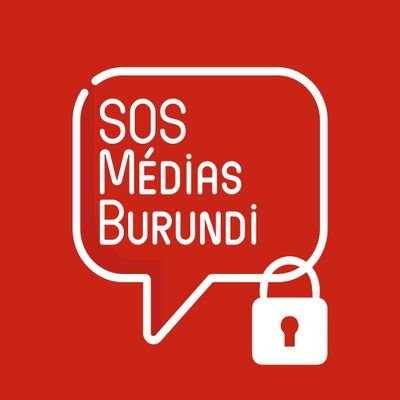North Kivu: displaced people put themselves in the EAC Chairman’s hands
The ceasefire convened between the FARDC (Forces Armées de la République Démocratique du Congo) and the M23 has not been respected. The Displaced from Kanyarutchinya, in North Kivu, are seeking from EAC head, the Burundian President Évariste Ndayishimiye, his personal involvement in the DRC’s security matter. INFO SOS Médias Burundi
Displaced persons confined in the Kanyarutchinya camp in Nyiragongo raise their voices days after a summit on Eastern Congo’s security, of the EAC leaders. The meeting was held in Bujumbura, Burundi in early February.
Regional leaders deplore the the non respect, by the parties, of the ceasefire in eastern DRC, requested by the same heads of State. Displaced people say armed groups present in the region “sow desolation among thousands of Congolese”.
Displaced people in Kanyarutchinya say M23 should stop hostilities in line with the agreement. It had been agreed to “seek solution for a lasting security between the M23 and the Congolese authorities”.
“I understand now that it was just a distraction to the Congolese. Our presidents have no intention of seeing peace return to the province of North Kivu. If really their meeting could be much more interested in the life of the Congolese, they should demand that the M23 cease hostilities ”, reckoned Enock Bikanu, a young displaced whom our reporter found in front of his house in Kanyarutchinya.
Most displaced persons settled in Kanyarutchinya fled fighting in the territory of Rutshuru north of the city of Goma.
“There is a risk of losing trust in the EAC leaders. What they say in meetings is not what we are currently experiencing on the ground. Instead of the M23 ceasing fire, it advances. We, living in the camp, are affected psychologically when we think that one day these rebels will join us even where we are,” says Grevais Mumbere, a father.
The displaced persons who confided in SOS Médias Burundi request from the current president of the EAC to send a mixed commission in order to “discuss with the M23 to allow the population who fled the fighting to return to their places of origin” .
“I think that Burundian President Évariste Ndayishimiye, who ordered a ceasefire in agreement with his counterparts, has the power to form a joint commission that can follow up on the security issue in the DRC”, consider several displaced persons.
“Otherwise we risk remaining displaced-foreigners in our own country for the rest of our lives”, lamented Raphaël Habumukiza, another displaced person.
“The EAC can set up a commission which can dialogue with the M23. The situation will recover,” said Evode Mukanirwa, who was also forced to flee his household.
The Congolese authorities are still reluctant to dialogue with the M23, which they describe as a “terrorist group”.
At the 20th EAC Heads of State Summit in the commercial city of Bujumbura, Felix Tshisekedi Tshilombo, President of the vast Central African country urged the commander of the EAC regional force deployed in North Kivu to “spare no effort to rout the M23 rebels and self-defense resistance groups in the territories of Masisi and Rutshuru”.
The M23 has always accused the Congolese army of collaborating closely with other local and foreign rebel groups, including the Rwandan genocidaires FDLR, to “defeat us”. Allegations rejected by the Congolese authorities who in turn accuse the Rwandan government of “backing the M23 and deploying special forces on Congolese soil in order to strengthen the rebel group”. Rwanda constantly denied the accusations, repeating its allegations against the Congo’s authorities that they are collaborating with the Rwandan genocidaires FDLR by providing them with uniforms, weapons and ammunition to “destabilize its territory”.
The Congolese president recently described the FDLR as “a residual force reduced to banditry and no longer representing a threat against Rwanda”.
The M23, a former ethnic Tutsi rebellion which took up arms again at the end of 2021 accusing the Congolese authorities of not having respected its commitments on the reintegration of its fighters, has already recovered several localities in the province of North Kivu since mid-June 2022, including the city of Bunagana, bordering Uganda.
In areas under the control of the rebellion, thousands have been forced out of their homes. But it calls for a “return back home”.
Recently fighting between the M23 and the Congolese army has resumed, the rebels explaining they “want to protect the Tutsi minority against a genocide planned by Kinshasa”.
The regional force already in place is still struggling to impose a ceasefire in the area. Actors in the Congolese crisis are divided as to the mission of this force. Although they has obtained humanitarian corridors and buffer zones, some politicians, civil society leaders, pressure groups and students find that they are not doing better and that they should rather “go on the offensive”.
Speaking to the commander-in-chief of the regional force, Kenyan General Jeff Nyagah on the sidelines of the Bujumbura summit, President Tshisekedi also raised his voice.
“You didn’t come to support the M23 and it’s a shame that the population is attacking you. You came to help us, you didn’t come to have problems. So be careful to that, be really attentive to that. Answer the questions of the population, communicate with the population”, insisted Mr. Tshisekedi in the presence of his Kenyan counterpart William Ruto.
During his recent trip to Kinshasa, the Congolese capital and moreover his first on the African continent, Pope Francis reckoned that “the international community has almost resigned to the violence that is devouring the Congolese people”, calling for the halt to the looting of mining resources in the DRC which, according to him, is claiming innocent victims. The sovereign pontiff also met the victims of the atrocities and violence committed in eastern Congo, including those of North Kivu to whom he said “your suffering is my suffering” after listening to testimonies from children, women, men, witnesses and victims of assassinations, mutilations, rape…

